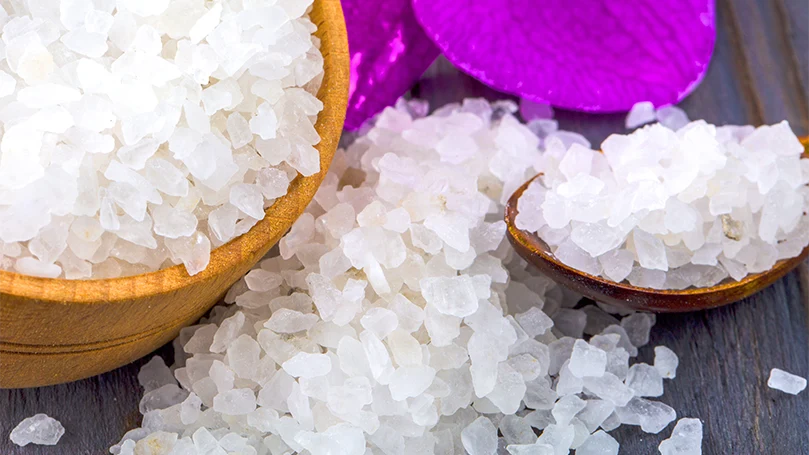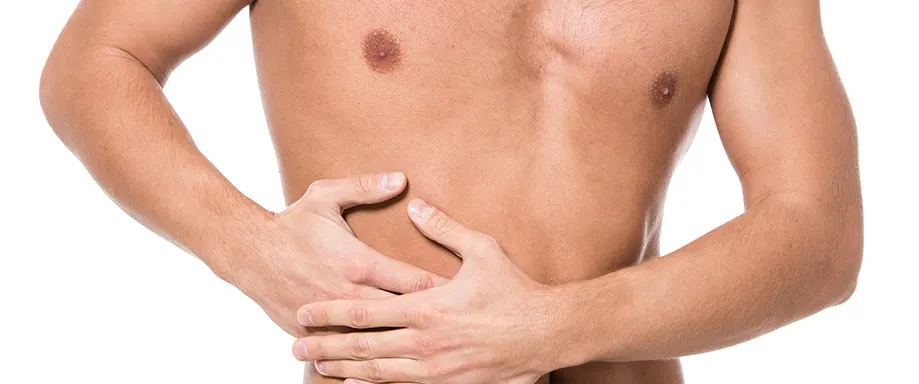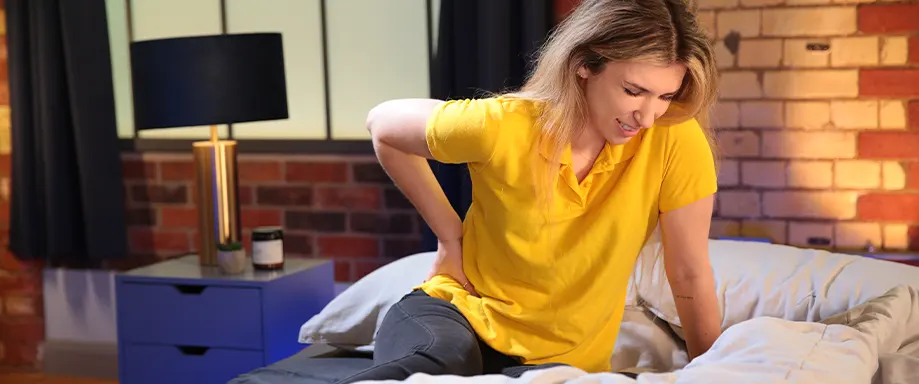What are intercostal muscles?
The intercostal muscles are many different muscle groups that are found between the ribs. There are three main groups of these muscles – external, internal and innermost intercostal muscles. These muscles are the ones that move and form the chest wall as you breathe. They help expand and contract the chest cavity as we breathe.

Each of these groups of muscles have their own role in the way we breathe, some active, some passive, but all of them do. Injury to those muscles often occurs due to direct trauma, such as a blow to the chest or back, sudden twisting or stretching motion or under some heavy physical strain, such as a heavy chest, back or shoulder workout.
What are the symptoms of an intercostal muscle strain?
Even though identifying the symptoms of intercostal muscle strain is easier than handling and dealing with them, there are a number of symptoms to look out for. Some of them might even be associated with other injuries or diseases, so if you happen to experience a sharp or stabbing pain in your chest, you're better off visiting a doctor instead of trying to diagnose yourself.
The most common symptoms of an intercostal muscle strain are:
- Sharp upper back or, pain under left rib or pain in ribs
- Sudden chest pain after a blow to the chest or back
- Worsening of the pain after repetitive movement or exercise
- Stiffness and tension in muscles
- Inability to twist the upper body
- Pain when breathing in deeply, coughing or sneezing
- Spasm of the intercostal muscles
- The tenderness between the ribs.
As we’ve previously said, some of these symptoms aren’t exclusive to intercostal muscle sprain, so if you feel like there could be another cause for any of them, you should consult with your primary physician.
Intercostal muscle strain treatment – How to sleep with intercostal muscle strain?
1. Have an Epsom salt bath prior to bed time
One of the easiest and most comfortable ways to deal with the intercostal muscle strain is to have an Epsom salt bath before you go to bed. Epsom salts have been known to help muscle recovery and many recommend them. The general idea behind it is that you’ll be able to absorb magnesium through your skin although it hasn’t been scientifically proven.
All you’ll need is about 2 cups of Epson salts which you’ll add to your bath. Bask in it for about 15 minutes and you should feel better and more relaxed.

2. Wrap your chest with bandages to immobilize the ribs
For a more severe injury to your intercostal muscles, you can help ease the pain and fall asleep easier by immobilizing your ribs with bandages. Wrapping and immobilizing your chest will limit the motion of your chest, making it easier for intercostal muscles to relax and recover, but also limiting their movement which will ease your pain. On the off chance you start experiencing difficulty breathing – undo or relax the bandages immediately.
3. Practice slow breathing
The gentler you breathe, the easier it should be to handle the pain. The intercostal muscles tend to flare up when they move, therefore, practising slow breathing should help limit the motion of these muscles thus eliminating or at least to some extent alleviating the pain. Slow breathing can also help you calm down, relax and fall asleep faster, which is also helpful in situations like these.

4. Apply a cold pack to ease up your pain
It is a well-known fact cold is your friend when it comes to muscle injuries. For that reason, you could help ease the pain by applying the cold pack to the affected area. The cold helps replace the blood in the muscle cells, making the recovery process a lot faster and more effective, which is what makes this method a great one for any muscle injury. You can follow up a cold pack with a heating pad or a warm bath for a hot-cold treatment experience.
5. Get yourself a reclining mattress and elevate your upper body
Changing the way you sleep can be beneficial in alleviating the pain in your upper body. Getting a reclining bed or a good mattress for an adjustable bed and sleeping in a non-horizontal position can help ease the pain caused by intercostal muscle strain. This should also limit the amount of activation in intercostal muscles when you get up, which should also help ease the pain. Furthermore, being in a semi-horizontal position also puts less pressure on your chest when you lie down, which means there’s less pressure on your intercostal muscles which translates to less pain in your chest and upper back area.
6. Place pillows below your knees
If you like to sleep on your side or back, you should put a pillow between or below your knees to achieve better spinal alignment. The better your body is aligned, the less strain there is on your muscles, especially on your chest and upper back muscles. A pillow below or between your knees has been known to help reduce intercostal muscle pain for the above-mentioned reasons. Naturally, you’ll want to use a bigger pillow when you sleep on your back and a small one if you’re sleeping sideways.
7. Get pain-relieving medications
In cases of severe pain, you may visit your doctor and have them prescribe you a pain-relieving medication. In some instances, the pain just won’t go away and there’s just nothing more to do. Muscles take time to heal and if you can’t deal with pain, some form of medication can be of great assistance. Keep in mind, you shouldn’t take any kind of pain medication before consulting with your physician first. Careless use of pain medication can only lead to more problems.

8. Schedule physical therapy
Physical therapy is arguably the best way to help treat inflamed, strained or injured muscles and it is no different in this case. If the pain lingers and you can’t seem to get it under control, your best bet is to schedule physical therapy and engage in some active recovery. You can pair physical therapy with any of the aforementioned pain-alleviating methods for even better results. The great thing about physical therapy is that you can do it for as long as you want without having to worry about consequences.
Conclusion
As you can see, dealing with intercostal muscle sprain isn’t easy. You’ll have to do a few things in order for things to go back to where they were and it might be some time before you get a good night’s sleep in, but the important thing is not to give up. We suggest you checking our methods of falling asleep in 5 minutes to make it easier for you. Hopefully, a mixture of all of these should help you tremendously during the recovery process and you should feel better after doing any of them.
Spread the word
"*" indicates required fields















I just think this is some awesome information. I was so excited to come I’ve been suffering with this for all almost 10 years.